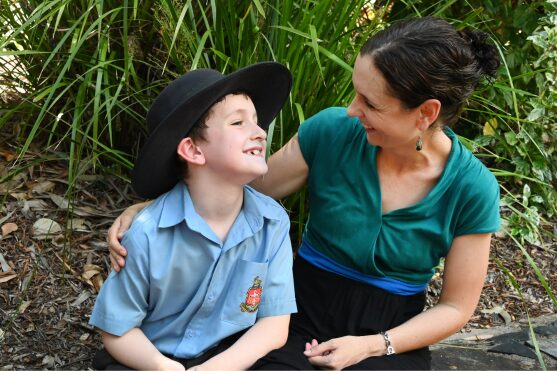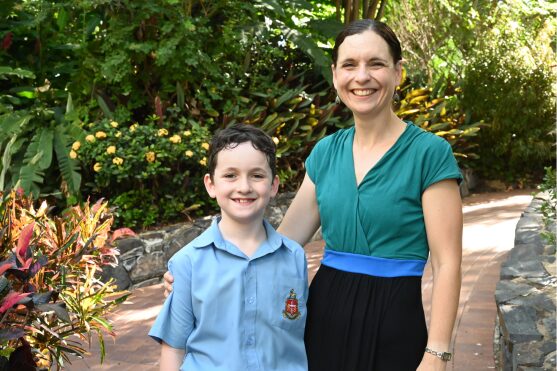How one family’s experience of autism led to a PhD scholarship

The Dyer family spent decades trying to get their son the autism diagnosis and support he needed. It wasn’t until he was an adult that it finally happened – and only after his mother identified it using a magazine article. As a result, the family was determined to impact the next generation of autism research with an important gift to Griffith University.
This story was first published in the hardcopy edition of Inspiring Stories of Giving volume 1 in October 2023.
The difficulty that one family experienced in getting a diagnosis for their son was the genesis for them to gift a scholarship committed to training the next generation of autism researchers.
The Dyer family’s lived experience with autism has led to the establishment of the Michael Nathanial Dyer PhD Scholarship Program at Griffith University to help advance knowledge and support for individuals with autism.
As young parents in the 1970s, Mr and Mrs Dyer noticed that their baby son was very clingy to his mother. Whereas other children would happily play with toys, Michael stayed firmly in Mrs Dyer’s lap.
Despite both his parents suspecting there were differences in Michael’s development, medical professionals at the time missed all the signs for autism, saying that everything was fine.
Even worse, further hospital visits led to Michael being put on high doses of drugs that made him like a “zombie” without diagnosing him with anything. “It still haunts me,” Mrs Dyer says. “But our search for a diagnosis continued and we never gave up.”
Finally, when Michael was an adult, Mrs Dyer read a magazine article about autism that listed symptoms she felt exactly matched his behaviours. “Me, a mum, diagnosed my son, when all the medical experts we’d seen couldn’t. I showed the article to my husband and Michael, and they both agreed.”
The Dyer family wanted to make an impact in the next generation of autism research, so they got in touch with Griffith University’s Autism Centre of Excellence (ACE) to create the scholarship. “The purpose of this scholarship is that hopefully research will advance so that parents don’t have to feel as helpless and frustrated as my husband and I did,” Mrs Dyer says.
Louise White was the inaugural recipient in 2022. Louise is a teacher and says she first realised she needed to learn more about autism when her own son, Edward, was diagnosed. Louise took up further studies in the Graduate Certificate in Autism Studies through Griffith’s Autism Centre. Her research focuses on the challenges many autistic people face transitioning from school.

“The move from school into work or further study represents a key time that we need to be supporting autistic young people, but I also knew that researchers weren’t able to tell parents or teachers how best to do it,” says Louise.
“I could not believe that, through the generosity of a family I had never met, I was being given the opportunity to complete research that will improve how schools and families support autistic young adults to make one of the biggest changes in their lives.”
This important research comes at a time when the federal government is developing a National Autism Strategy. Government data shows that for many autistic people life outcomes in education, vocation, health and family functioning are worse than they should be. Autistic people are around seven times more likely to be unemployed than people without a disability, and at a higher risk of homelessness.
“Each time I had the chance to focus an assignment on a specific topic, I chose to focus on transitions, especially big life-stage transitions. However, I was constantly frustrated when I had to finish every assignment saying that we needed more research to tell us more in this area.
“This scholarship means that not only is research advancing in this much-needed area but unbelievably, I am part of making that happen. This is an opportunity to make a real impact. I consider this to be such an important undertaking that, without the scholarship, would just not be possible.”
Louise and her research team have been able to meet with the Dyers to share their experiences of autism. “I have been able to thank them for their generosity, and for trusting me to realise their vision for this scholarship and the research that it will enable,” Louise says.
“Every time the research gets hard, and sometimes it really does, I think of how important it is, and how it will benefit our children, and the children in so many other families. Because of the Dyers and the generosity of their gift, we can truly work to make a powerful and positive change.”